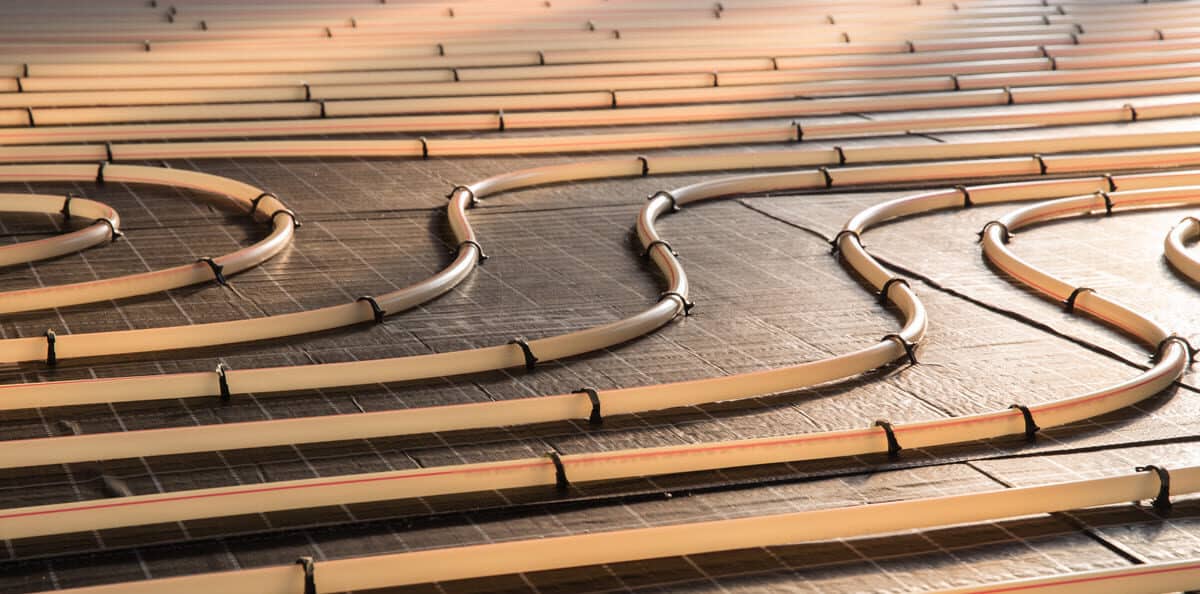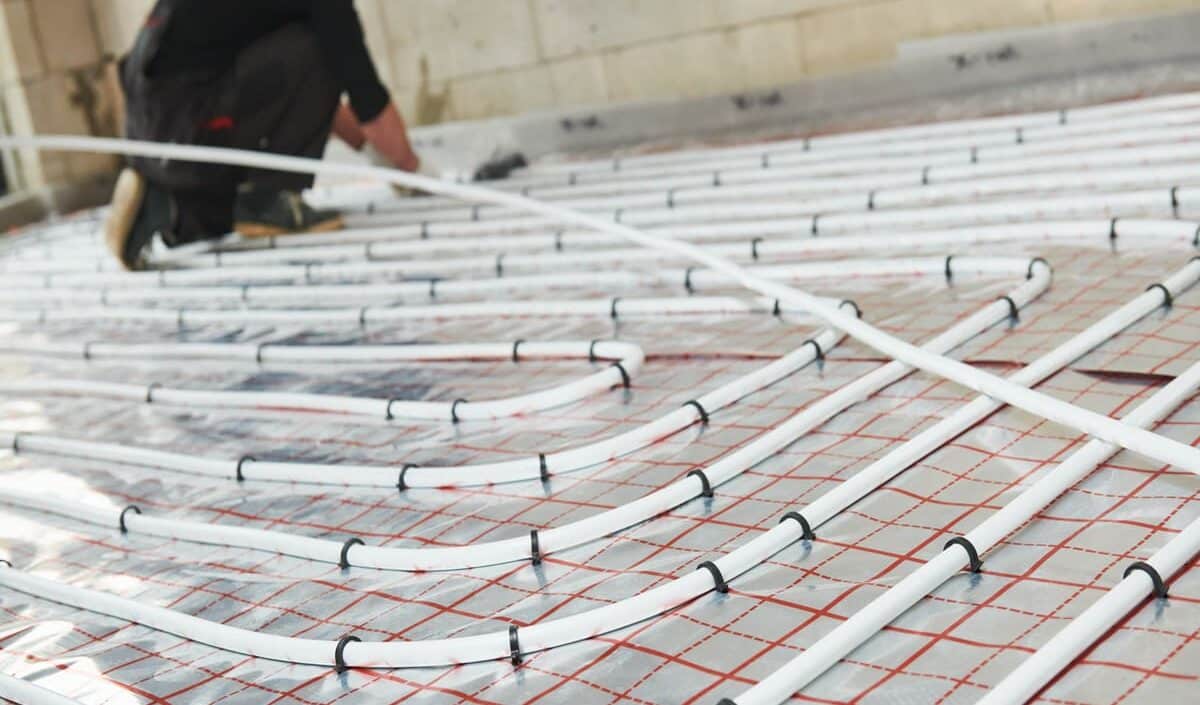

You need to make sure you get the right insulation for underfloor heating, or you’ll be left feeling cold and frustrated. Waterproof properties are a must, as is a luxurious sense of warmth. You’ll also need to make sure that the insulation is properly primed before installation.
If you’re looking for an electric underfloor heating insulation that will keep your heating system from escaping and has a high compressive strength, we’ve got just the thing. Our electric underfloor heating insulation is made from a special board that is designed to withstand high temperatures and compressions. Plus, it’s easy to install and can be used with any type of flooring.
You’ll be able to spend longer in your bathroom with underfloor heating once you’ve installed electric insulation boards. The boards enhance the luxurious sense of the space and make it more comfortable to stay in for extended periods of time.
You’re looking for the best way to insulate your home and you’ve heard that water underfloor heating is a great option. But what is it exactly? And how do you make sure you comply with building regulations?
Water underfloor heating involves circulating hot water through pipes in the floor. It’s a great way to heat your home because it’s efficient and unobtrusive. But before you install it, there are a few things you need to know. First, you need to make sure your floor is suitable. Underfloor heating works best with solid floors like concrete, stone or tile. If your floor is made of wood or laminate, you’ll need to put down a layer of insulation first.
Second, you need to make sure the room is well-insulated. The more insulation you have, the less heat will be lost through the floor and walls. This means your system will be more efficient and will cost less to run. Third, you need to check the building regulations. Water underfloor heating systems must be installed by a qualified installer and must meet certain standards. This is to ensure they are safe and won’t damage your property.
So if you’re looking for an efficient and stylish way to heat your home, water underfloor heating could be the perfect solution. Just make sure you do your research first!
We Are Also Available to Offer Heat Pumps Related Advice
To find out more about our services, get free quotations, or arrange an appointment, call this number 0204 586 6171.
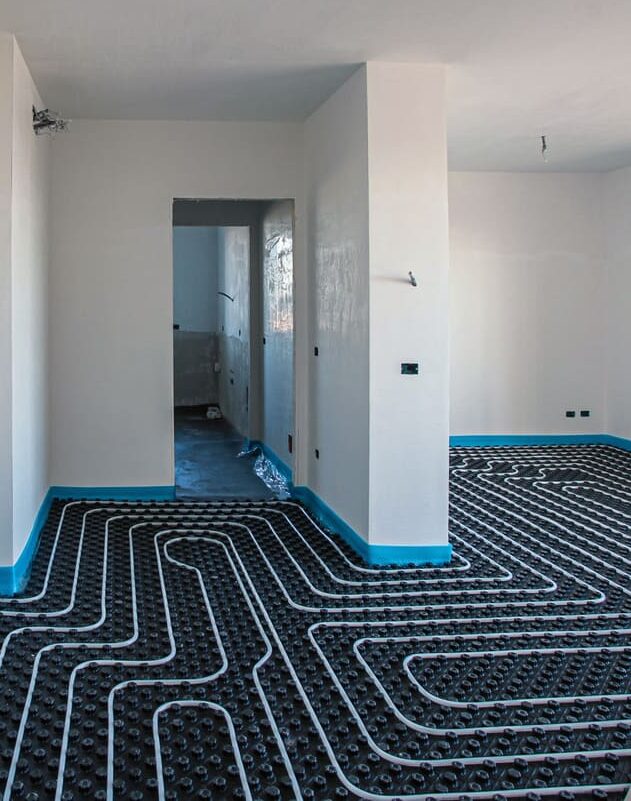
You want to make sure your underfloor heating system is as efficient as possible, and one way to do that is to use water resistant extruded polystyrene insulation boards. These boards are able to resist water damage, while also absorbing heat. This helps to create a thin layer of insulation that will protect your floors and keep them warm.
When you’re considering what kind of insulation to use for your underfloor heating, there are a few things you need to take into account. Insulation boards come in a variety of different thicknesses and sizes, so you need to make sure you get the right ones for your needs. Insulation board also enhances the performance of your underfloor heating system by keeping the heat in and preventing it from escaping.
The first thing you need to consider is whether the room you are looking to heat is already well insulated. If it’s a new extension, for example, then you might not need as much insulation as you would in an older property. However, if you’re not sure, it’s always best to err on the side of caution and choose an insulation that will be effective in any situation.
There are a few different types of tile adhesive that you can choose from, but we would recommend a water-based adhesive for underfloor heating. This type of adhesive is easy to apply and will provide a good level of insulation. It’s also relatively inexpensive, so it’s a great option if you’re trying to keep your running costs down.
You have a lot of windows and high ceilings. You want to keep your home warm in the winter and cool in the summer. You need to find a way to conserve energy and reduce heat loss. Underfloor heating insulation is an excellent way to do both.
You’re looking for a way to reduce the amount of heat loss in your home and you’re considering underfloor heating insulation. There are a few things you need to take into account when making your decision, including the type of flooring you have and the building regulations in your area.
If you have a concrete floor, you’ll need to make sure that the insulation is thick enough to meet the building regulations. Timber joists are another common type of flooring, and again, you’ll need to make sure that the insulation is thick enough to meet the building regulations. Upstairs floors can be more difficult to insulate, but it’s still possible to do so. You’ll just need to make sure that you get the right product for the job.
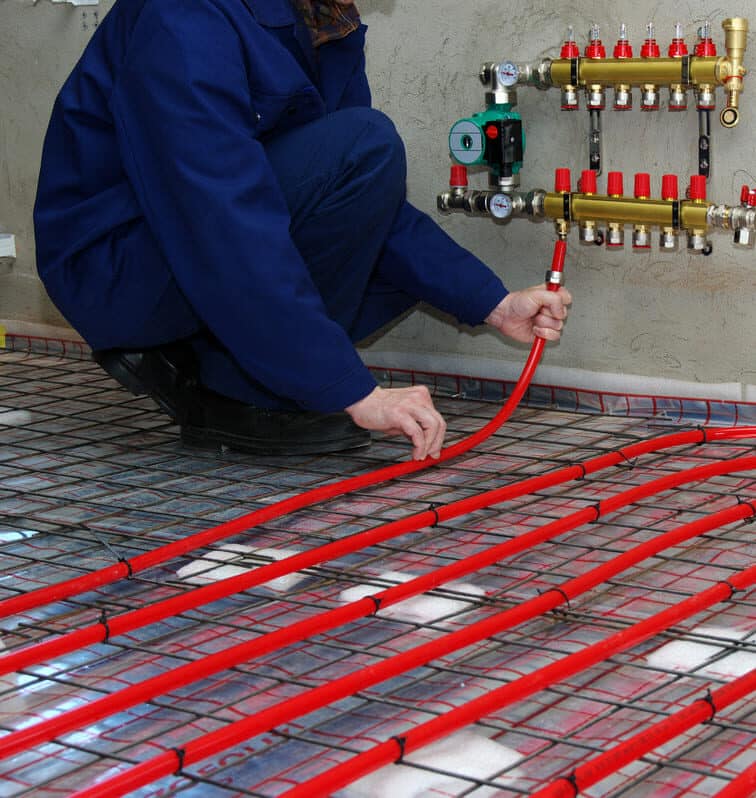
If you’re looking at installing underfloor heating in your home, you might be wondering whether it’s better to do so in a new build property or a renovation. Both have their advantages and disadvantages when it comes to insulation. In a new build property, the floor is usually made of suspended timber, which means that there is already a space for the insulation board to be fitted. This can make installation quicker and easier. However, you will need to make sure that the board is compatible with the underfloor heating system you’re using.
Wall tiles can also make it more difficult to install insulation in a new build property. In a renovation property, the existing flooring will need to be removed before the insulation board can be fitted. This can add to the cost and time of installation. However, it does mean that you have more flexibility when it comes to choosing an insulation board that is compatible with your underfloor heating system.
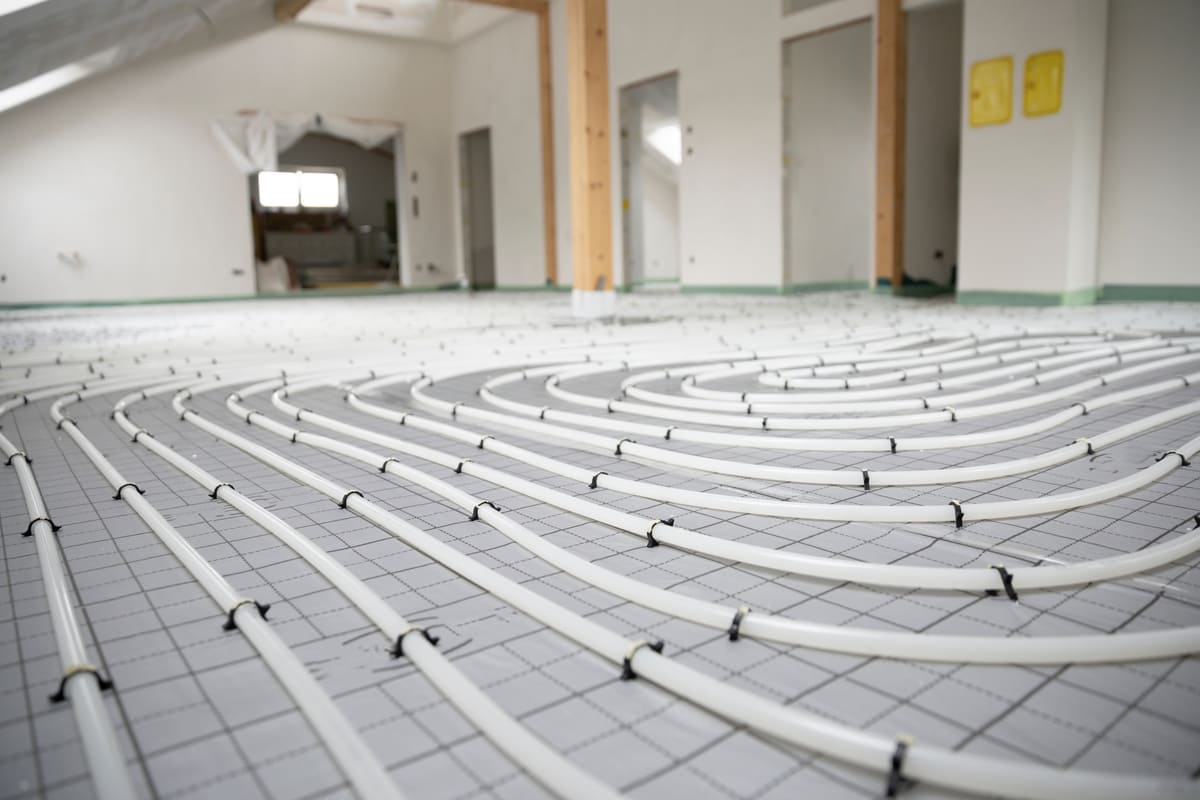
You’re probably wondering why you should install underfloor insulation in your home. There are actually many benefits to doing so, especially if you live in a wet room. Fibreglass reinforced cement is a great material for underfloor insulation as it helps to keep the heat in and the cold out.
It also prevents moisture from seeping through and damaging your flooring. Installing underfloor insulation is a great way to improve the energy efficiency of your home and save money on your energy bills.
We Are Also Available to Offer Heat Pumps Related Advice
You know those wet room walls? The ones that are always cold and damp? Well, with underfloor insulation, you can say goodbye to those chilly walls! Not only will your home be warmer, but you’ll also save money on your energy bills. And who doesn’t love saving money? Underfloor insulation is easy to install and requires very little maintenance. Plus, it’s an eco-friendly way to heat your home. So not only will you be comfortable and cozy, but you’ll also be doing your part for the environment. Win-win!
You want your home to be as energy-efficient as possible. And electric underfloor heating insulation can help you achieve that goal. By keeping your cooler set back temperature, you can reduce your energy consumption by up to 10%. And by using pre-insulated subfloors, you can further increase your energy efficiency by up to 25%.
You’re looking for an electric underfloor heating system that is both efficient and easy to install. You want a system that will insulate your bathroom and keep your feet warm. You’ve come to the right place. We offer a variety of electric underfloor heating systems that are perfect for any project.
As you know, insulation is key to keeping your home warm in the winter and cool in the summer. But did you know that insulation can also have a big impact on your underfloor heating system? That’s right – by insulating your floors, you can keep your home warmer in the winter and cooler in the summer, while also saving money on your energy bills.
In fact, according to the Department of Energy, insulating your floors can save you up to 30% on your heating and cooling costs. Not only that, but by insulating your floors, you can also increase the efficiency of your underfloor heating system.
That means that you’ll use less energy to heat your home, and as a result, you’ll save even more money on your energy bills. So if you’re looking for a way to save money on your energy bills and increase the efficiency of your underfloor heating system, then insulation is the way to go.
You want to make sure your underfloor heating is as efficient as possible, and one of the best ways to do that is by insulating it properly.
Our water resistant extruded polystyrene insulation is a great option for all subfloors, and it will help to keep your running costs down. Room takes:
This type of insulation is also very easy to install, so you won’t have to spend too much time on the installation process.
Plus, it’s water resistant, so you won’t have to worry about any moisture damage.



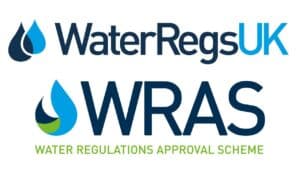

You’re looking into underfloor heating insulation and wondering about the cost. Here’s what you need to know. The cost of underfloor heating insulation will depend on a few factors, including.
the type of insulation you choose, the size of your project, and any building regulations that apply in your area. Heating costs will also play a role in the overall cost of your project.
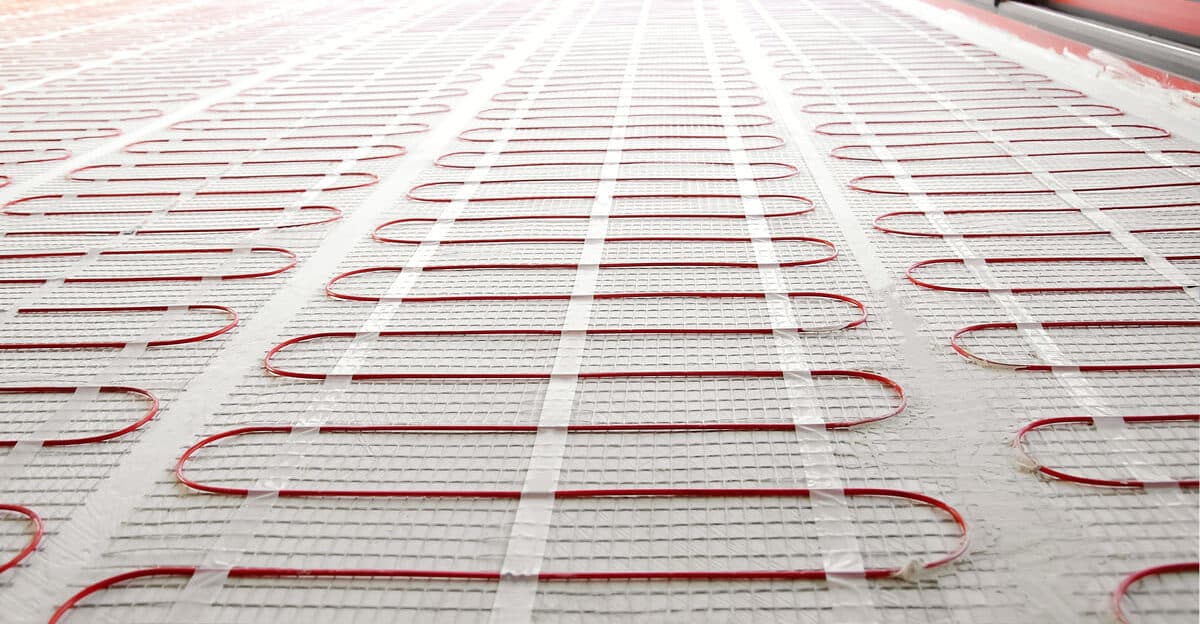
When it comes to electric systems, Mitten Under Floor Heatingis the clear choice for underfloor heating insulation. Not only do we have a cooler set back temperature, but our waterproof properties make us the ideal choice for any home or office. As you know, tile adhesive is essential for your board and individual project requirements. But what you may not know is that tile adhesive can also be used for underfloor heating insulation. That’s right – with the help of tile adhesive, you can keep your home warm and toasty all winter long. And best of all, it’s easy to do yourself. So why not give it a try?
No, you don’t need to use a tile adhesive when fitting insulation boards. However, we would recommend using an adhesive if you’re fitting the boards over an existing floor. This will help to keep the boards in place and stop them from moving around.
We would recommend using a water-based adhesive, as this is the most compatible with underfloor heating systems. solvent-based adhesives can damage the system and make it less efficient.
You may be wondering if you need insulation for underfloor heating. The answer is that it depends on the individual project requirements. If you are installing underfloor heating in a room that is already well insulated, you may not need to add any additional insulation. However, if you are installing underfloor heating in a room that is not well insulated, you will likely need to add some insulation in order to maximize the efficiency of the system.
You may be wondering if you need insulation for your underfloor heating system, especially if you have a wet room. The short answer is that it depends on the type of system you have and the running costs.
If you have an electric underfloor heating system, then you will need to insulate the floor and walls to prevent heat loss. This will help to keep your running costs down as well as keeping the room warm. If you have a wet room with underfloor heating, then you will need to insulate the walls to prevent heat loss. This is because the floor will be constantly wet and the insulation will help to keep the room warm.There are two main types of insulation boards which can be used for underfloor heating – polystyrene and polyurethane. Both have their own advantages and disadvantages, so it’s important to choose the right one for your needs.
Polystyrene is a cheaper option, but it doesn’t last as long as polyurethane. It’s also not as effective at insulating your room, so you may find that your heating bills are higher with this type of insulation. Polyurethane is more expensive, but it will last longer and is more effective at insulating your room. This means that you’ll save money on your heating bills in the long run.You’re wondering if mineral wool is any good for insulation in your wet room. The short answer is yes! Mineral wool is an excellent insulator and can help you meet building regulations.
Here’s a bit more detail: wet room walls can lose a lot of heat, so it’s important to make sure they’re well insulated. Pre-insulated subfloors can help with this, as they provide an extra layer of insulation between the floor and the wall. Building regulations require that all new homes must have an energy performance certificate (EPC). An EPC will show how energy efficient your home is and give it a rating from A (very efficient) to G (inefficient). To get an EPC, you need to have an assessor come and look at your home. They’ll take into account things like the type of insulation you have, as well as the size and shape of your home. So if you’re thinking about getting underfloor heating, make sure you get it installed by a professional who knows what they’re doing!You may be wondering if a backing board is necessary for your underfloor heating insulation project. The short answer is that it depends on the surface you’re working with. If you have an excellent surface to work with, then you may not need a backing board. However, if you’re working with a less than ideal surface, then a backing board can help to ensure a successful installation.
You might be wondering how spreader plates work with underfloor heating. Essentially, a spreader plate is a thin layer of insulation that helps to distribute heat evenly across a wet room floor. This not only helps to reduce running costs, but also ensures that your floor is heated evenly and consistently.
If you’re looking to install underfloor heating in your home, you’ll need to make sure you have the right insulation in place. Otherwise, you’ll be losing heat and your room will take longer to warm up.
There are a few different types of insulation that can be used for underfloor heating, but if you have an intermediate floor (i.e. one that’s not on the ground), you’ll need to make sure you get a good quality heat loss flooring. This will help to keep the heat in your room and stop it from escaping.You might be wondering whether you should insulate your underfloor heating pipework. There are a few things to consider when making this decision.
Underfloor heating systems rely on thermal mass to store heat and release it gradually over time. This means that insulation can actually reduce the efficiency of the system, by preventing the heat from being stored in the thermal mass. On the other hand, if you live in a particularly cold climate, insulation can help to prevent the pipes from freezing. This is something you will need to weigh up when making your decision.You might be wondering about the best way to insulate your suspended timber floor when you’re installing underfloor heating. After all, you want to make sure that as much heat as possible stays in your home, and doesn’t escape through the floorboards.
One option is to use insulation boards. These can help to reduce downward heat loss, keeping your home warmer for longer. It’s important to make sure that the boards are properly laid and fit snugly against each other, in order to create a good seal. You also need to make sure that there’s no gaps around the edges of the boards, as this could allow heat to escape.As someone who is looking to install electric underfloor heating, you may be wondering why insulation is so important. Here are a few reasons why:
Firstly, without insulation, heat loss can be a real problem. Even with the most efficient underfloor heating system, around 10% of heat is lost through the floor. This means that your heating bills could be higher than they need to be, and your home won’t feel as warm as it could be. Secondly, the type of flooring you have can make a big difference to how well your underfloor heating works. Carpets and rugs will insulate your floor and help to keep the heat in, while hard floors like wood or laminate will allow the heat to escape more easily. So if you’re looking for maximum efficiency, it’s worth considering investing in some good quality insulation.
